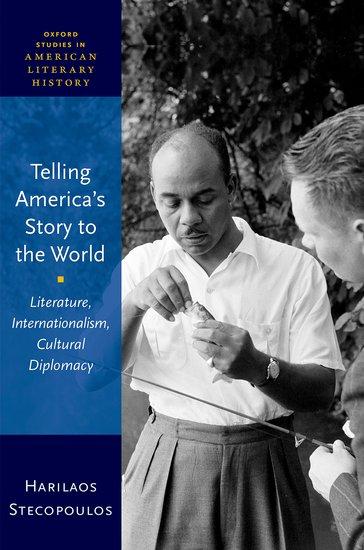
Zustellung: Sa, 02.08. - Do, 07.08.
Versand in 2 Wochen
VersandkostenfreiBestellen & in Filiale abholen:
Telling America's Story to the World is the first study to demonstrate the important role that US cultural diplomacy played in the making of postwar US literature. It does so by discussing how the work of Ralph Ellison, Robert Frost, William Faulkner, Langston Hughes, and Maxine Hong Kingston was used to demonstrate American cultural identity.
Inhaltsverzeichnis
- Preface
- Introduction
- 1: The Good Neighbor Theory of American Literature: Archibald MacLeish and "the New World" of the United Nations
- 2: "Chau-vin-ism! Con-form-ity! Self-de-termi-nation! Freeeeeeeeee-dom!" Ralph Ellison, Robert Lowell, and Occupied Salzburg
- 3: People to People, Writers to Writers: William Faulkner, the Snopes Problem, and Middlebrow Internationalism
- 4: Diasporic Diplomacy: Langston Hughes, the Africa Propaganda Campaign, and Black Literary Internationalism
- 5: Republic of Letters, Cockpit of Controversy: Arthur Miller, PEN International, and Literary Détente
- 6: "A Harvest of Conversations Among Multitudes": Maxine Hong Kingston, Wittman Ah Sing, and the US-China Writers' Conferences
- Coda: Multicultural Diplomacy
- Bibliography
Produktdetails
Erscheinungsdatum
03. Februar 2023
Sprache
englisch
Seitenanzahl
318
Autor/Autorin
Harilaos Stecopoulos
Verlag/Hersteller
Produktart
gebunden
Gewicht
635 g
Größe (L/B/H)
231/163/38 mm
ISBN
9780192864635
Entdecken Sie mehr
Bewertungen
0 Bewertungen
Es wurden noch keine Bewertungen abgegeben. Schreiben Sie die erste Bewertung zu "Telling America's Story to the World" und helfen Sie damit anderen bei der Kaufentscheidung.









